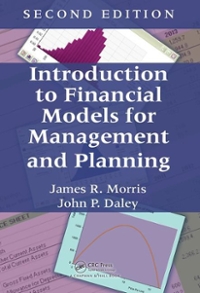Question
Parkallen Inc. has identified the following two mutually exclusive projects: Year Cash Flow (A) Cash Flow (B) 0 $ 35,300 $ 35,300 1 16,730 6,700
Parkallen Inc. has identified the following two mutually exclusive projects:
| Year | Cash Flow (A) | Cash Flow (B) | |||||
| 0 | $ | 35,300 | $ | 35,300 | |||
| 1 | 16,730 | 6,700 | |||||
| 2 | 14,820 | 12,200 | |||||
| 3 | 11,720 | 17,600 | |||||
| 4 | 7,620 | 19,680 | |||||
a-1. What is the IRR for each of these projects? (Do not round intermediate calculations. Round the final answers to 2 decimal places.)
| IRR | |
| Project A | % |
| Project B | % |
a-2. Using the IRR decision rule, which project should the company accept?
-
Project A
-
Project B
a-3. Is this decision necessarily correct?
-
Yes
-
No
b-1. If the required return is 11%, what is the NPV for each of these projects? (Do not round intermediate calculations. Round the final answers to 2 decimal places. Omit $ sign in your response.)
| NPV | ||
| Project A | $ | |
| Project B | $ | |
b-2. Which project will the company choose if it applies the NPV decision rule?
-
Project A
-
Project B
c. At what discount rate would the company be indifferent between these two projects? (Do not round intermediate calculations. Round the final answer to 2 decimal places.)
Discount rate %
Step by Step Solution
There are 3 Steps involved in it
Step: 1

Get Instant Access to Expert-Tailored Solutions
See step-by-step solutions with expert insights and AI powered tools for academic success
Step: 2

Step: 3

Ace Your Homework with AI
Get the answers you need in no time with our AI-driven, step-by-step assistance
Get Started


